Washing your hair with a suitable shampoo is not enough. Everyone now understands the importance of establishing a proper shampoo and conditioner routine. The conditioner should be applied and rinsed thoroughly after each shampoo to complete the beauty ritual for your hair. It will be important to know the nature and texture of your hair and scalp to target the right product. Decryption.
Understanding Conditioner
If the shelves of boutiques and department stores are full of conditioners, it is because it is now accepted that this product is inseparable from shampoo for successful hair washing.
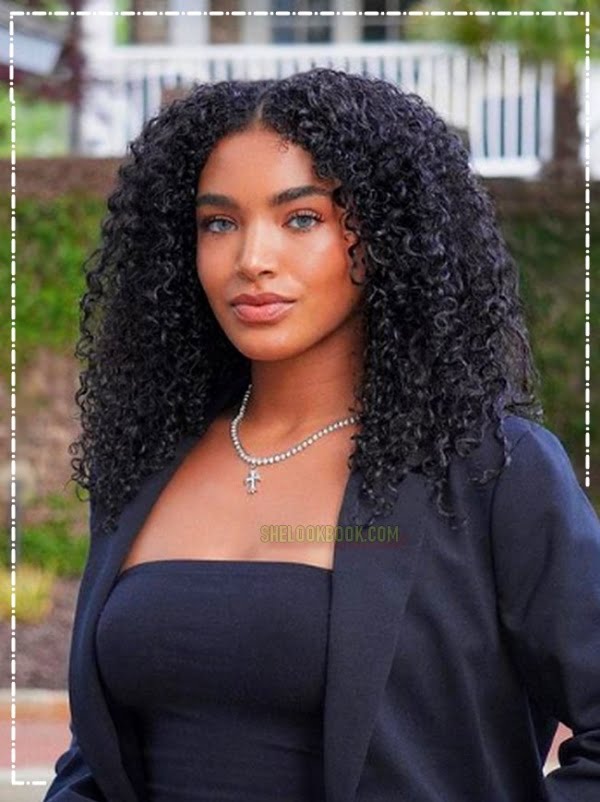
The definition and history of conditioner
The conditioner, more commonly called conditioner, truly puts the hair in “good condition,” provided that this product is applied according to the rules of the art. It will also be appropriate to choose it according to the nature of your hair and any transformations carried out: permanent, coloring (for example: conditioner for colored hair), and straightening.
From a historical point of view, conditioners became widespread at the same time as the appearance of shampoo. It should be remembered that before the very beginning of the 20th century, when it was created, shampoo did not exist, and people washed their hair with soap.
Our grandmothers used vinegar or lemon juice to dissolve soap residue and make hair less dull and rough. We can say that these two products were the precursors of our conditioner since they improved the styling of the hair while giving it a shinier appearance.
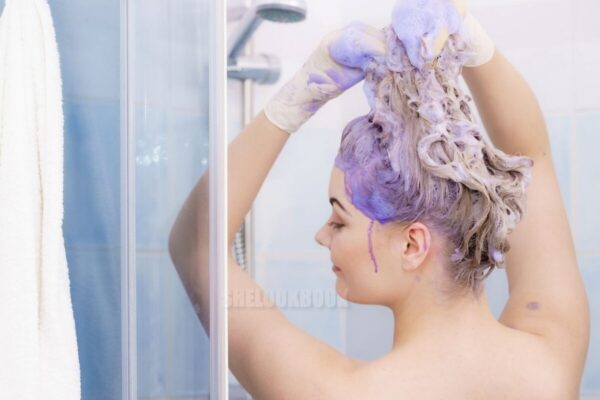
Shampoo and conditioner form an inseparable duo and are recommended by professional hairdressers. The fruit of cosmetological research, they are designed to provide shine and volume.
However, the products undergo numerous tests before being put on the market because they must not cause allergies or be dangerous for the health of the skin, especially the scalp.
A whole campaign has also highlighted that products without parabens are to be preferred, as well as those that are not tested on animals in laboratories. The consumer pays more attention to these elements when choosing their conditioner.
What are the differences between conditioner, mask, and leave-in treatment?
Conditioner
It is applied just after rinsing out the shampoo. Its break time is essential but remains quite short, compared to a hair mask. It is essential for properly detangling washed hair, and it also provides renewed shine and volume. It rinses completely before drying the hair.
The hair mask
It has active ingredients that will penetrate the hair fiber even more. We therefore recommend it regularly in addition to a shampoo and conditioner routine.
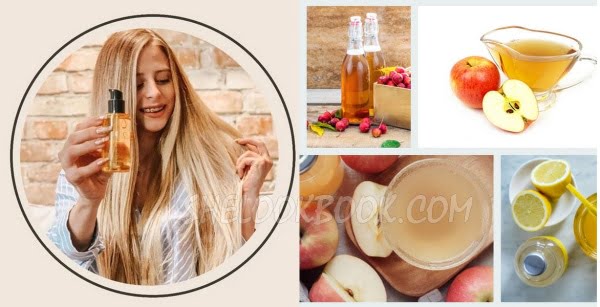
Some hair masks are intended to be applied before shampooing, particularly for oily scalps or if the hair is brittle.
They can be applied to dry hair and left on for at least 30 minutes before washing as usual.
As for the conditioner mask, which is used more frequently, it is also richer in active ingredients, and we will observe a sufficiently long exposure time so that it can release all these active ingredients (around 30 minutes). The hair mask can be used once or twice a week.
Leave-in treatment
There are some for different types of hair (for example: special curly hair), and they can be applied to the hair every day. There is no need to rinse them. These treatments can be in the form of a spray to spray the product all over the hair or in the form of a cream to apply with the fingertips.
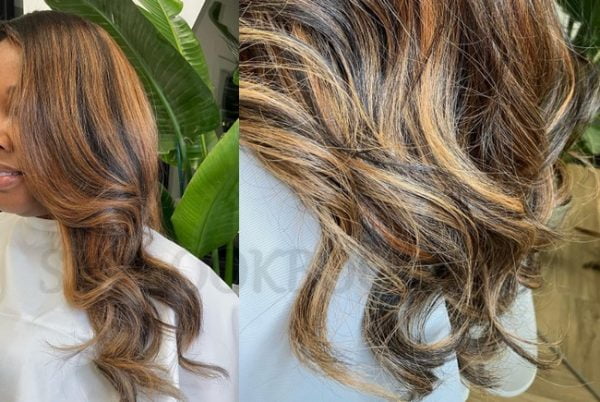
The crucial role of conditioner
Given the advice of many specialists and all the advertisements praising the importance of conditioner for having beautiful hair, it is no longer possible to ignore the essential role of conditioner. Besides, even men get into it.
The benefits of conditioner for hair
If you ask a cosmetologist, he will tell you that the role of conditioner is quite distinct from that of shampoo, while being complementary and essential.
The function of shampoo is to wash, and this product is characterized by an anionic base. This means that it is composed of anionic surfactants, with a negative charge, whose objective is to remove dirt from hair, which has a positive charge.
The function of the conditioner is to soften and produce a positive charge to restore balance and ensure its restorative function for the hair and scalp.

The conditioner hydrates the hair fiber, eliminates any knots that may have been created during shampooing, nourishes the ends, and adds shine.
Mistakes to avoid when using conditioner
To avoid making a mistake, especially if you change products frequently, it is useful to read the application instructions. It will indicate the exposure time, which may vary from one brand to another.
If you use a nourishing conditioner, make sure to apply the product well, paying particular attention to the ends if you mainly want to treat dry ends. Avoid putting too much product on the roots if they tend to be oily.
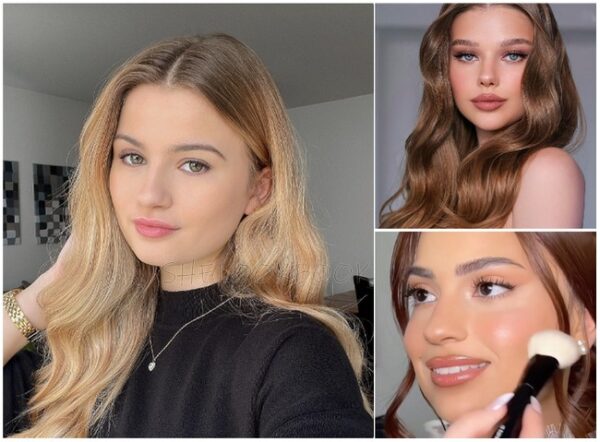
Be sure to target your conditioner according to the nature of your hair (for example: fine hair without volume, curly hair, colored hair, dry and brittle hair, etc.).
Rinse your conditioner thoroughly with clean water, unless it is specified as a leave-in product.
OUR ADVICE:
Remember to recap the tube after use and check the expiration date. On cosmetics, a small jar with an open lid appears on the packaging. The number entered designates the lifespan of the product after opening. For example, for 12 months, that leaves you 12 months, from the opening of your conditioner. This is important information for those who tend to use several products at the same time.
How to choose your conditioner according to your hair type?
Whatever your hair type, there is a conditioner for you. The range covers a price range suitable for all budgets. You can buy conditioner in drugstores, supermarkets, department stores, online, or specialized stores. Some brands are only found in drugstores when they offer more specific treatments.
Conditioners according to the nature of the hair
There are several types:
- conditioner for fine hair without volume (this is often a silicone-free conditioner, which will not weigh down the hair),
- conditioner for normal hair,
- conditioner for oily hair,
- specific conditioner for oily roots, dry ends, etc.
Conditioners according to hair treatments
- conditioner for permed (curly) hair,
- conditioner for colored hair;
- conditioner for very curly or frizzy hair (unlike those who want curls, people with frizzy hair will tend to opt for an anti-frizz conditioner).
Other conditioners
- intended for gray hair or white hair;
- conditioners that prevent gray hair from turning yellow or where blonde hair tends to turn yellow (de-yellowing conditioner).
- organic or vegan conditioners (not tested on animals, with paraben-free ingredients, etc.)
Application advice for optimal results
Steps to Properly Apply Conditioner
There is no question of putting on a dab of conditioner and then immediately rinsing the hair. The application process is much more meticulous.
After having washed and dried all of your hair, take the conditioner suitable for your hair and apply it to your entire hair, from roots to ends.
ATTENTION:
- However, if you tend to have oily roots, it will be better to focus more on the lengths and ends and have a lighter hand at the roots. You can opt for a silicone-free product to avoid weighing down your hair.
- The product’s rest time—leave for approximately 2 to 5 minutes—is the ideal time to delicately massage the scalp and ensure that the conditioner has well penetrated the lengths and even more so the ends.
Once the exposure time has elapsed, rinse your hair thoroughly and dry it thoroughly with a clean, dry towel before separating the strands with a wide-toothed wooden comb.
Ideally, hair can be air-dried, but many prefer an electric dryer. There are also thermo-protective hair care products that will avoid the disadvantages of drying with a hair dryer, by protecting the hair fiber.
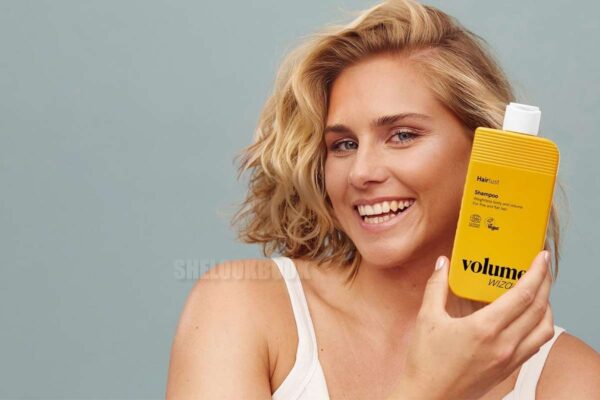
The importance of rinsing
Unless otherwise indicated, the conditioner should be rinsed thoroughly, and all residues should be removed so as not to weigh down the hair. Today, brands are launching leave-in conditioners. They have the function of conditioner but are used a bit like other leave-in hair care products.
OUR ADVICE:
When you have finished rinsing your conditioner thoroughly, finish with colder water to tighten the scales of the hair.
Innovations and trends around conditioner
Leave-in conditioner and other new products
Leave-in conditioners have been entering the hair care market for some time now. Real time-saving products, simply apply them to the hair after shampooing and wringing out the hair well, and that’s it!
You can also turn to 2-in-1 products, which are particularly popular when you travel and don’t want to have too many products in your luggage. Likewise, the solid version of the conditioner appeared after that of the shampoo.
If the content is essential, we scrutinize the container more, and we do not hesitate to check that the packaging is not too polluting and can be easily recycled.
The co-wash trend and its impact
This trend of using conditioner instead of shampoo allows you to space out shampoos and give your hair a hydration bath to make it silkier.
Simply wet the entire hair, then lightly wring it out before applying the specific conditioner, depending on the nature of your hair.
The application is done meticulously, smoothing each strand well for optimal results.
Then proceed as usual by lightly massaging the scalp and leaving the conditioner on for about a quarter of an hour before rinsing thoroughly.
The co-wash trend is particularly suitable for weakened hair—curly, dried out by sea water in summer, or even frizzy. It helps prevent further damage by not Shampooing too much.
Conditioner is inseparable from your hair beauty routine. It must complement the shampoo to restore softness and lightness to the hair. The conditioner must be carefully chosen according to the nature of one’s hair and meticulously applied after shampooing.
However, it is possible to opt for a co-wash routine if you want to space out shampoos while still taking care of your hair.